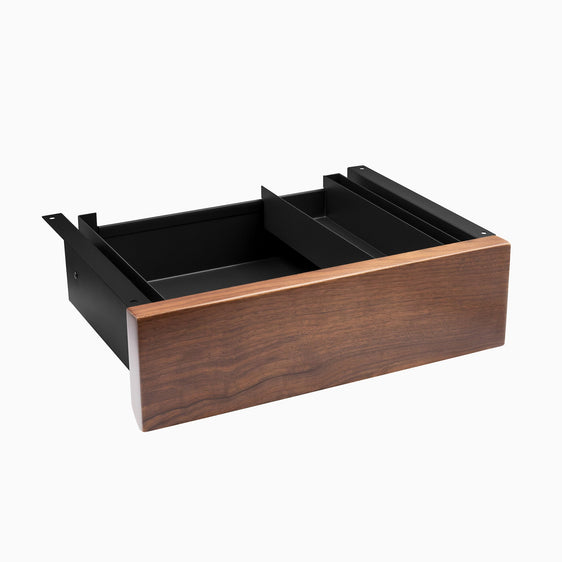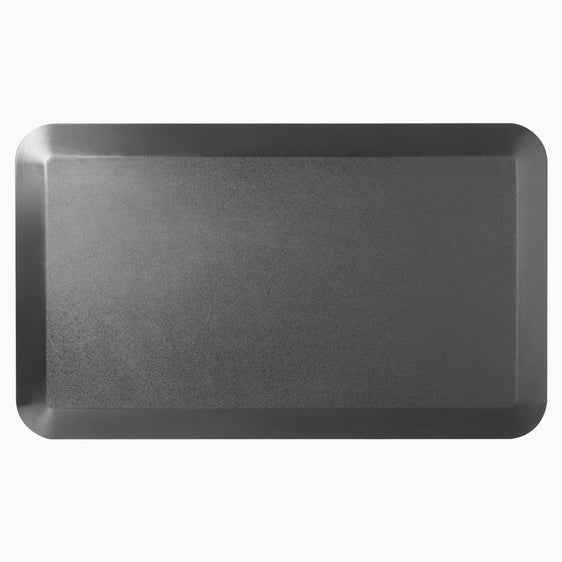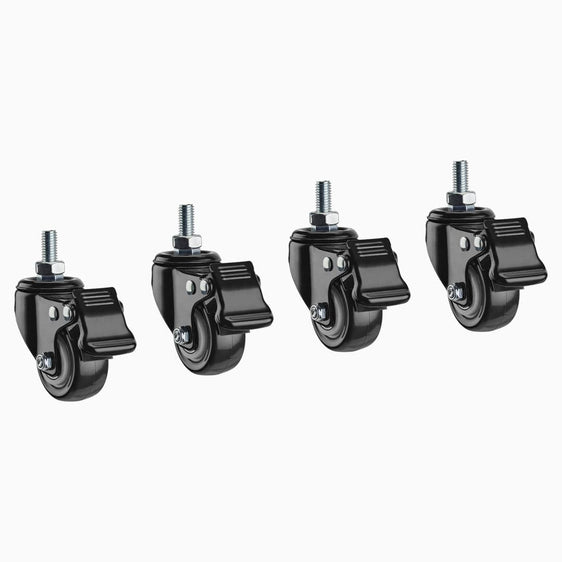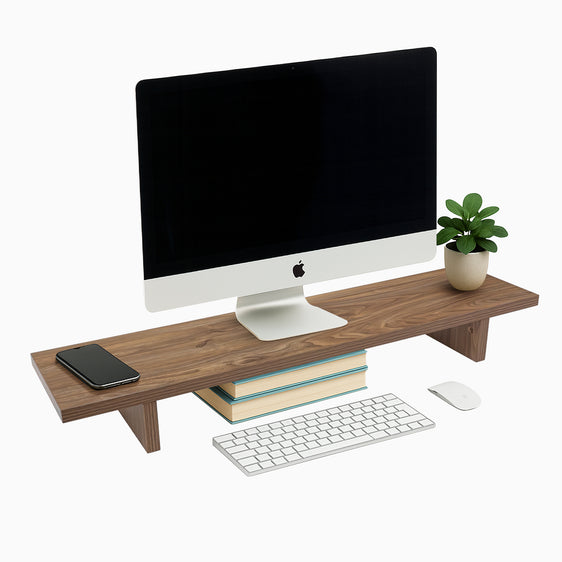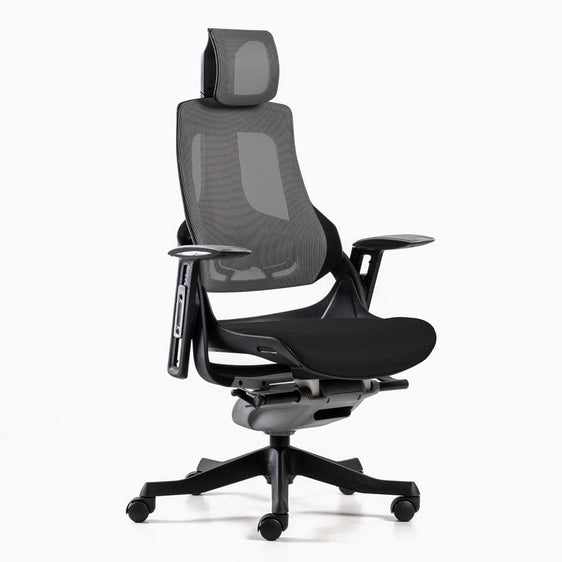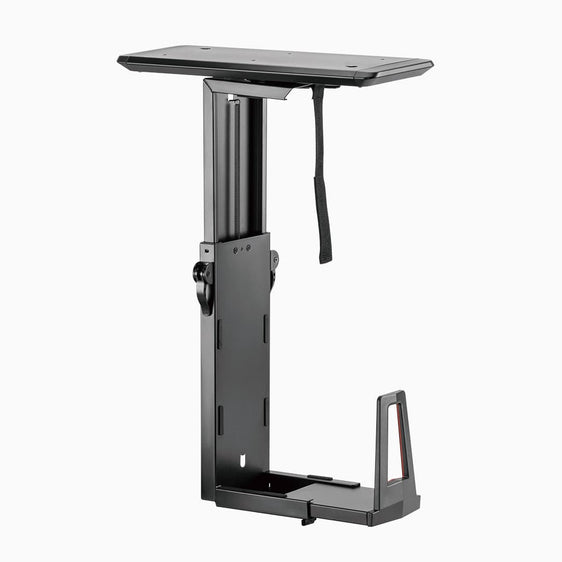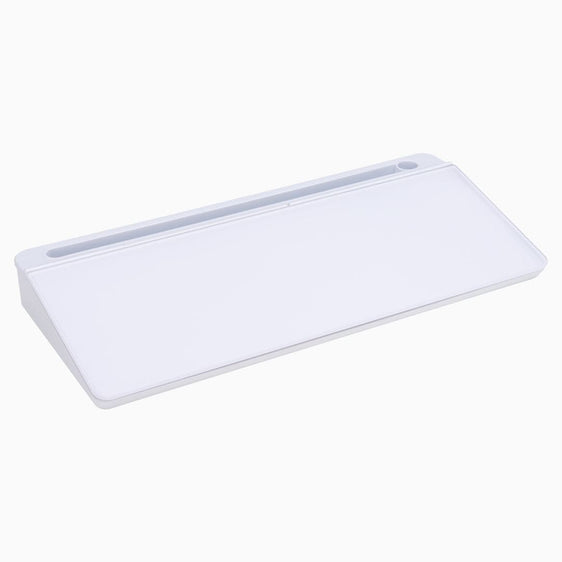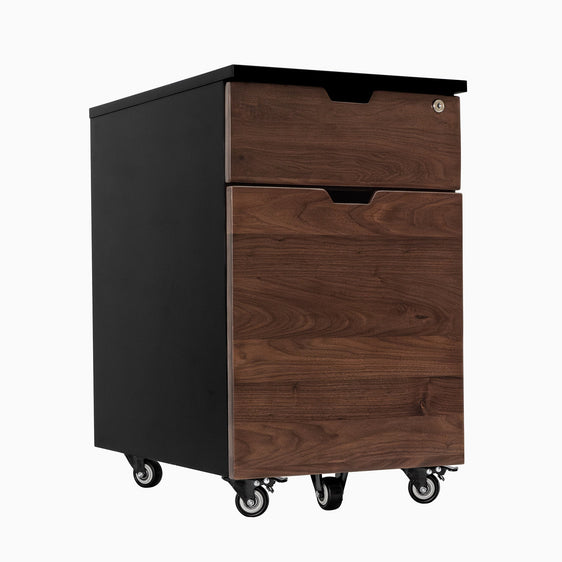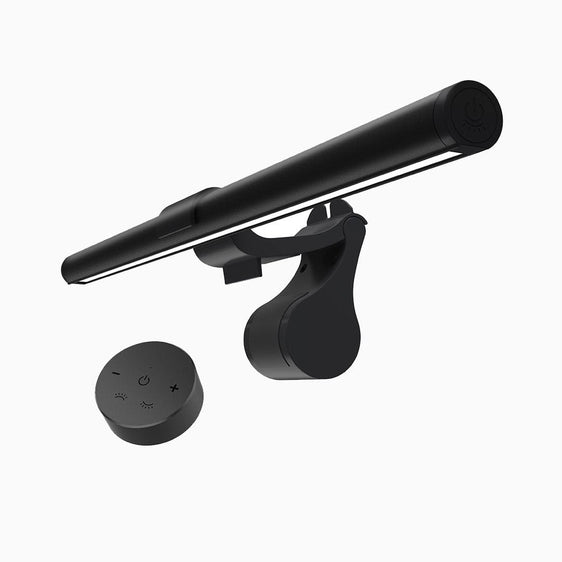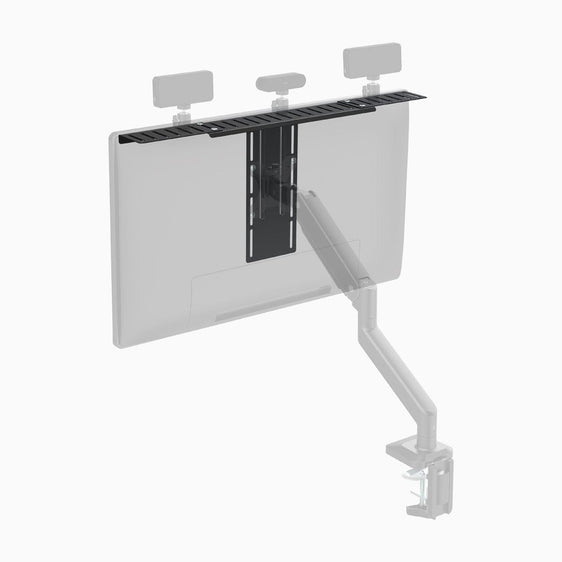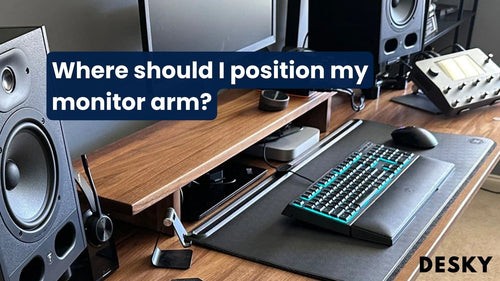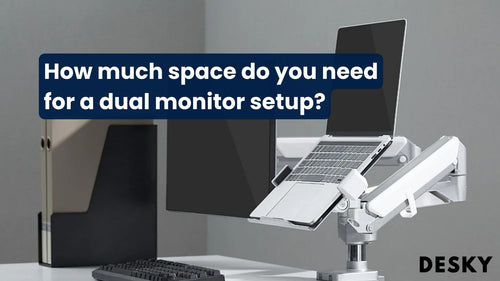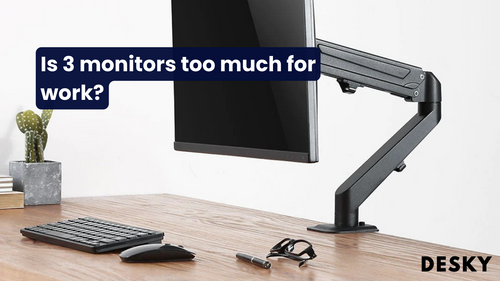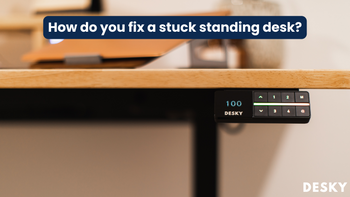
FAQ
How do you fix a stuck standing desk?
Hayden AdamsIf you're standing before your desk, frustrated as you watch it refuse to respond to your command, know that you're not alone. Standing desks, while innovative and beneficial, can occasionally become unresponsive.
In such moments, a bit of troubleshooting can work wonders. But first, let's dive into the mechanism of standing desks, how they are powered and common issues you may encounter with your desk and how to solve them.
Mechanism Of Standing Desks
Indeed, to understand the operating system better, we must dive into the core mechanics. Standing desks don't employ hydraulic systems; rather, they leverage a system known as "pneumatic counterbalance".
It involves the use of a cylinder filled with gas. The concept follows the same principle as the spring tension of a counterbalance. Gas or fluid moves around or through the piston equally, balancing the pressure on both sides, which makes the desk's surface lift seamlessly.
Motors Used In Standing Desks
A standing desk typically uses one of two types of motors. The first, a single motor, powers a single column but offers somewhat limited functionality.
The second type, a dual motor system, enhances both stability and weight capacity, providing a more substantial difference in the functionality and adaptability of the desk. You can learn more about the differences between these motor types in our Single vs Dual Motor Standing Desk Comparison post.
Weight Capacity Of Standing Desks
Standing desks have proved their mettle when it comes to durability and adaptability. Known for their weight capacity, their primary purpose is to load the workspace without any compromise on stability.
The weight strength, often classified as the "weight limit," demonstrates the allowance to tolerate weight that ranges typically around 68 kg. Notably, Desky's single and dual motor desks are renowned for their ability to handle a load of up to 140 kg., depending on the model.
Manual vs Automatic Sit Stand Desks
Comparing manual to automatic or motorized sit-stand desks can further highlight their specific attributes. A key difference lies in how transitions between sitting and standing positions are made. Automatic desks employ motors to make this transition, wherein the desk height can be adjusted at the push of a button.
Manual sit-to-stand desks, on the other hand, require user input in the form of winding a handle to alter the desk's height. Both types have their unique benefits, but the simplicity and reliability of manual desks do make them a popular choice for many. Below we talk more about each in detail.
Manual Adjustable Desks

Manual adjustable desks function through non-electronic components. These could be knobs, cranks, sit-stand systems, or gas cylinders. Through manual intervention, you can adjust these components to establish the desk at the desired height.
Each desk type might use a different component, so it's crucial to understand your particular model's mechanics.
How to lower a manual standing desk
Lowering your manual adjustable desk employs a straightforward process. Using the appropriately assigned controls, such as a knob, crank, or gas spring, apply a gentle, steady force downward. The operation is manual; hence, the user controls it directly and can gauge the exact height they feel most comfortable with.
It’s worth keeping in mind that the degree of force needed to lower the tabletop might depend on the weight it carries at that moment. For safety, always keep your workspace clear and use both hands while adjusting the height.
Are manual standing desks better?
Manual standing desks are often viewed as the more reliable option when compared to their electric counterparts. Imagine having a desk that, year over year, functions without a hitch—no motor burnouts, no electrical malfunctions, just smooth operation.
Manual standing desks can often boast this level of reliability for upwards of 10 years. The simplicity of manual standing desks—namely, not incorporating complex electronics or motors—contributes greatly to their long-lasting operation.
{{ spec_dual_mini_desk }}
Electric Desks
Turning our attention to the power mechanics of these standing desks, we shed light on something called electric desk lifts.
These systems replace the traditional fixed legs of your desk with lifting columns powered by electricity. It's these columns and a user-friendly control system that allow you to adjust the desk's height as per your liking and comfort.
Aside from that, these desks usually offer preset heights, bestowing the gift of quick and hassle-free adjustments.
How to raise electric standing desk
Raising a standing desk is typically seamless with the aid of complete motorization that comes with the hardware. The control panel, conveniently located on the desk, has two distinct arrow symbols indicating the 'up' and 'down' adjustment directions.
Often, these control panels are preset with four different height positions, allowing quick and effortless adaptability to different positions. Properly adjusting your desk height can help avoid issues such as back pain, neck strain, and poor posture
Can you manually raise an electric standing desk?
Indeed, a considerable number of electric standing desks come with a manual modification option. Users can readily calibrate these ergonomic desks by using the attached hand crank or lever.
Additionally, a range of electric standing desks have integrated motor systems to ease the process of adjusting desk height, usually at the simple touch of a button. This utility of these products makes them a component of a move against the sedentary lifestyle many of us lead.
Common Issues In Standing Desks
Despite the benefits of standing desks, they are not without their challenges. Below, we talk about each and how to troubleshoot them.
Fixing Wobbling Desk
Shaking desk when going down
The trembling issue often arises from assembly inaccuracies or frequent up-and-down movement of the sit stand desk. Regular maintenance is key to eliminating this annoyance. Just like an office chair, readdressing the tightness of bolts every six to twelve months can tackle hardware looseness.
How to stop desk from wobbling
Shakiness can be caused by a variety of reasons, like ill-fitting screws, an imbalanced leg length, or unleveled flooring. Start by firmly securing the screws connecting the legs to the desk feet. These screws have a tendency to loosen over time, creating a compound wobble effect.
If the desk's stability is compromised at a seated height, rectifying this issue generally involves tightening these screws and ensuring your desk isn't too high for comfortable use.
How to stabilize standing desk
Augmenting the count of legs can enhance the balance of the standing desk. If this doesn't work, experiment by relocating the desk to sturdier grounds or by boosting the desk legs. Numerous desks feature foot levelers for convenience. If you don't have these, you can assess the level by positioning a tool atop the desktop.
Alternative measures to consider:
- Repositioning your desk
- Confirming floor is level
- Inspecting and adjusting foot levelers regularly
How To Fix Stuck Standing Desk
Your standing desk, much like any piece of technology, will occasionally have its quirks. When your standing desk becomes stuck, first perform a simple visual inspection.
Look for obstructions beneath and above the desk that might prevent its movement. Clear off your desk completely, and then try adjusting the height, resetting it to its lowest position before trying to elevate it once again. Also, confirm that all cable connections are intact.
Sometimes, slight misalignments or loose connections can be the root cause. If all else fails, refer to your product manual, as it might carry specific troubleshooting steps tailored for your model of desk.
{{ spec_dual_desk_frame }}
Unlocking a Locked Standing Desk
Some desk, especially Desky models, feature a lock or a safety feature restricting unwanted movement. Refer to your user manual to understand the unlock procedure specific to your model.
In general, pressing down on both up and down buttons simultaneously for a few seconds often works for majority models. Reference your standing desk manual or check the product's page on the Desky website for resetting procedures.
Reset Your Standing Desk
Manually resetting your desk can often combat a refusal to move. Usually, this involves bringing your desk down to its lowest setting, leaving it turned off for a while before powering it back on.
If a reset function is featured, typically two buttons have to be held down simultaneously. Lastly, remember that resetting the desk might erase any preset buttons for height adjustments. Refer once again to your user manual or trusted guides for detailed steps.
Troubleshooting Electric Standing Desk Not Going Up
Several factors might impede the elevation of your standing desk. Power outage is a common culprit hindering the desk's operation.
Alternatively, the upper gear box may be blocked, rendering the desk immobile. And then, there is a possibility of a dysfunctional control box cycle or an issue with the power connections linking the desk.
Common Causes:
- Power outage
- Blocked upper gear box
- Dysfunctional control box cycle
- Issues with power connections
How To Manually Adjust An Electric Standing Desk
If you're unable to adjust your standing desk electrically, you might need to raise or lower it manually. Firmly grip both sides of the desk's top and gently apply upward or downward pressure.
Please remember, forcing the desk too aggressively may lead to damage. For specific under-desk hand crank models, follow the instructions outlined in your product's manual.
How To Manually Increase Height Of Regular Desks
Creating a standing desk from an existing workspace might look daunting, but you can do it without breaking the bank. Large, hardcover books are potential candidates to craft steady legs and elevate your desk.
Stack them under the desk’s legs until you achieve the desired height. This is an economical option, but remember to use heavy, sturdy books to guarantee stability and safety for your improvised standing desk.
Another option is to use a standing desk converter, such as the Desky Zero Standing Desk Converter. This is a device that you can place on top of your regular desk and adjust the height to suit your preferences.
It has a spacious work surface, a keyboard tray, and a gas spring mechanism that allows you to switch between sitting and standing easily.
How To Lock The Desky Dual Desk’s Control Panel
- First and foremost, in any programming situation, ensure all the cables to the control box under the Desky are firmly plugged in, including the power cable, both yellow LED cables, and the control panels.
- Then, check the power outlet at the wall to ensure it is secure in place and switched on.
- Next, make sure there are no obstacles under your Desky as we will be bringing it down to its lowest height.
- To lock the controller, simply press and hold the M button, it will display the height and then you’ll see the word “LOC” displayed, which will confirm you have locked your controller.
- To unlock it, press and hold the M button once more until it returns the display to the current height of the Desky, and you are done. That is how you lock the controller on your Desky Dual.
Conclusion
Troubleshooting a non-responsive desk doesn't have to be a herculean task. Start by examining the desk for common issues such as obstructions or loose cable connections.
Unlocking the desk, adjusting it manually and resetting it are all viable troubleshooting processes that can alleviate the problem at hand. Help is always readily available via user manuals or trusted websites like ours.
With these tips, getting your desk back to working condition will be as easy as pie. Life is too short for a stubborn standing desk, so make the most of these strategies and get back on your feet in no time.
About the author

Desky
Work better. Be more productive.

